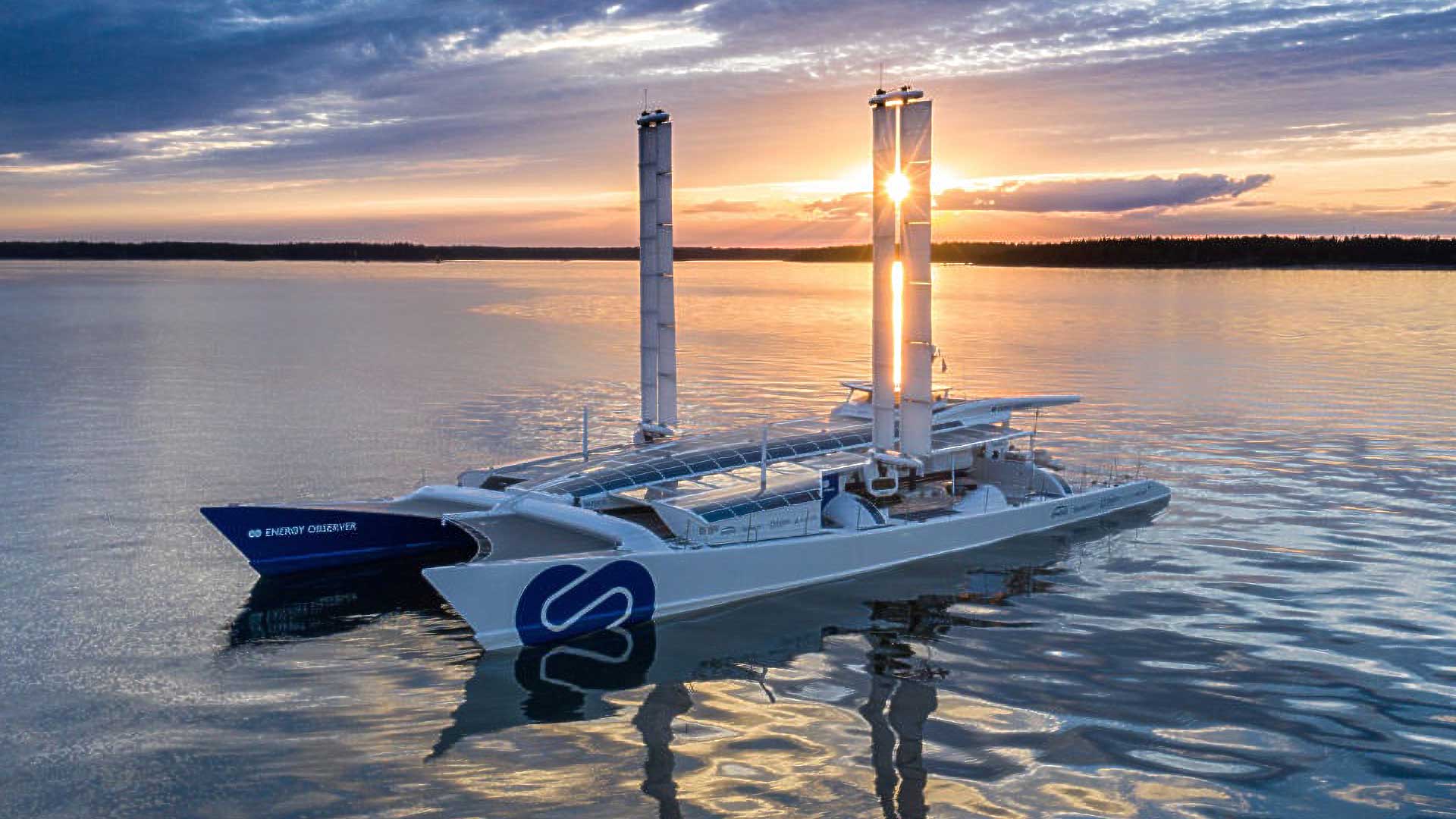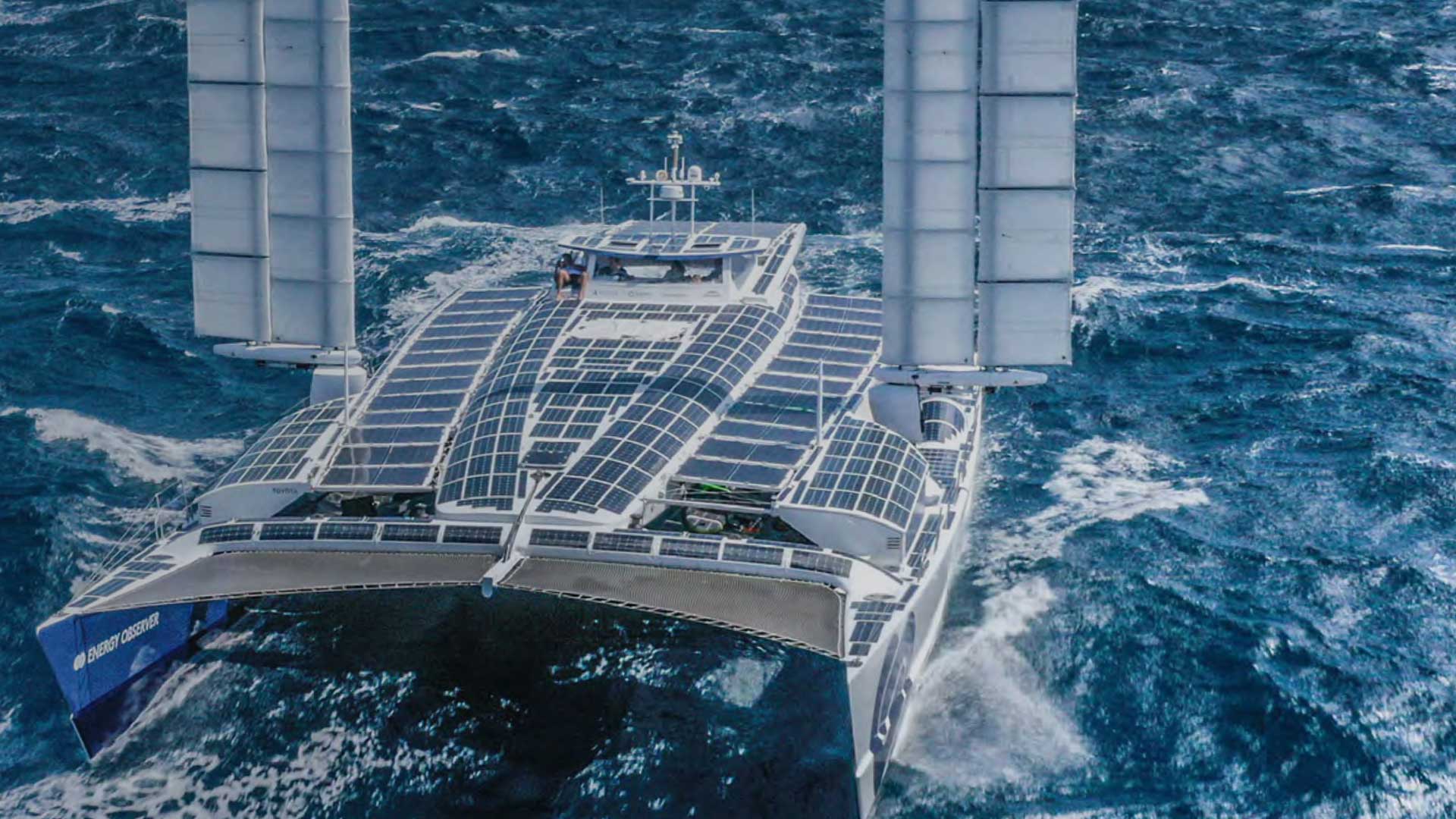Hydrogen at Sea: Charting a Sustainable Future for the Marine Industry.
Jan 29, 2025
Image source - https://www.energy-observer.org/
The marine industry plays a pivotal role in global trade and transportation, but it is undergoing a necessary transformation toward sustainability. Hydrogen is emerging as a clean and versatile energy solution that could help decarbonise maritime operations and comply with increasingly strict environmental regulations.
Why Hydrogen in Marine Applications?
Maritime transport is responsible for nearly 3% of global greenhouse gas emissions, which could rise significantly if we don't act. Hydrogen offers several compelling advantages over traditional fossil fuels:
Zero Emissions: Fuel cells powered by hydrogen produce only water and heat, eliminating harmful pollutants like sulphur oxides (SOx), nitrogen oxides (NOx), and particulate matter.
Energy Density: With a high energy-to-weight ratio, hydrogen is particularly suitable for vessels that require long-range capabilities.
Regulatory Compliance: As the International Maritime Organization (IMO) sets ambitious targets to reduce greenhouse gas emissions by 50% by 2050, hydrogen presents a way for shipping companies to align with these objectives.

Image source - https://www.energy-observer.org/
Hydrogen in the Marine Sector
Hydrogen fuel cells are gaining traction in maritime vessels, from small ferries to large cargo ships. These fuel cells convert hydrogen into electricity, serving as a clean power source for propulsion and onboard systems. Innovative companies like ABB and Ballard Power Systems are at the forefront of developing marine-specific fuel cell technologies.
Additionally, some manufacturers modify traditional internal combustion engines to run on hydrogen. While these engines emit minor NOx emissions, they are a transitional option towards cleaner alternatives.
Hydrogen isn't just limited to vessels; it makes waves in port operations. Equipment like hydrogen fuel cell forklifts, cranes, and generators are helping reduce the carbon footprint of logistics hubs.
Real-World Projects and Innovations
Several pioneering projects are showcasing the potential of hydrogen in marine applications:
Hydroville: This vessel, launched in Belgium, is the world's first certified hydrogen-powered passenger ferry, proving the technology's viability for water transport. The Hydroville is powered partially by hydrogen in a diesel engine (H2ICE, 441kW). At 19kts in dual fuel mode (55% H2), the engine saves:
58% CO2 compared to diesel mode
65% NOx compared to diesel mode
13% increase in thermal efficiency
In the first year of operation, over 4000kg of CO2 was saved based on H2 consumed.
Energy Observer: This autonomous vessel merges hydrogen fuel cells with renewable energy sources like solar and wind, demonstrating its versatility for ocean exploration. On September 12, 2024, Energy Observer, the first zero-emission hydrogen-powered vessel to sail worldwide, docked in Paris for her final port of call.

Image source - https://www.energy-observer.org/
Challenges to Adoption
Despite the promise of hydrogen, several hurdles need to be addressed for widespread adoption in the marine industry:
Infrastructure Development: Establishing refueling stations for hydrogen at ports is essential for feasibility.
Storage and Transport: Hydrogen's low volumetric energy density requires advanced storage solutions, whether through compressed gas or liquid hydrogen tanks.
Cost: Hydrogen production, primarily green hydrogen sourced from renewable energy, remains pricier than fossil fuels.
A Greener Future for the Seas
Even with these challenges, interest in hydrogen within the marine sector is snowballing. Governments, research organisations, and private companies are investing in this technology, with numerous pilot projects paving the way for commercialisation.
Hydrogen is more than a future fuel; it's actively reshaping maritime operations today. By incorporating hydrogen, the marine industry can align with global sustainability goals while preserving our oceans for future generations.
The Future
To realise this potential, innovators and policymakers must work together to tackle the barriers to hydrogen adoption. This effort should focus on scaling up the production of green hydrogen, building the necessary infrastructure, and encouraging early adopters within the maritime industry. With the right investments and policies, hydrogen could revolutionise marine transport and lead to cleaner seas.
